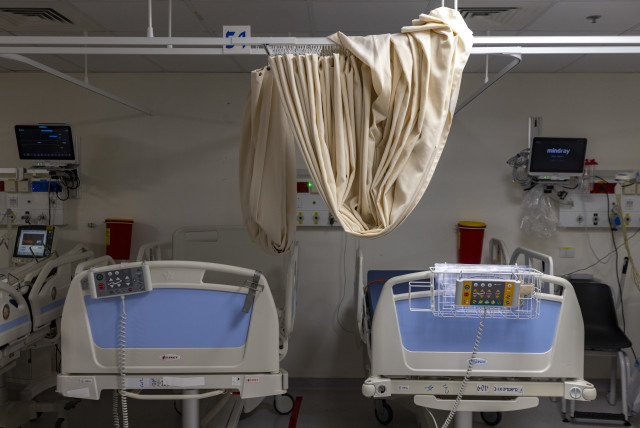How are Israelis holding up emotionally post-COVID? - survey

Over half of adults say their state of health is fine, but 17% had relatives, close friends who perished.
Among Israelis aged 20 and over, 51% say their state of health is “very good,” 33% say it is “good,” 12% say it is “not so good,” and 4.3% say it is “not good at all,” according to a new social survey by the Central Bureau of Statistics (CBS).
The statistics bureau has conducted the social survey every year since 2002. It provides information on the living conditions of the population related to housing, cars, health, education, Internet use, employment, vacations, contact with family and friends, voluntary activities, economic situations, satisfaction, and trust.
In 2022, the survey dealt with the occupational, social, and economic consequences of the pandemic, including the influence of religion, the perception of democracy, and the perception of the media. As part of the 2022 social survey, 6,501 people aged 20 and over were interviewed, representing about 5.8 million people from January 2022 to January 2023.
Among those aged 65 and over, 43% defined their health negatively, and 17% (about 976,000 people) reported that their health condition had worsened due to the pandemic.
The rate of health deterioration increased with age, as 14% of those aged 20 to 44, 18% of those aged 45 to 64, and 20% of those aged 65 and over reported deterioration in their health due to the pandemic. A total of 56% (about 3.27 million people) were infected with the potentially fatal virus. This included 53% of men, 59% of women, 57% of Jews, and 47% of Arabs.
Among Jews, the haredi (ultra-Orthodox) and Modern Orthodox sectors were infected with the virus at a higher rate than the rest of the population: 73% of the Haredim, 63% of the Modern Orthodox, 55% of the traditional, and 56% of the secular.
Collective grief and loss
Incredibly, 17% of those polled (about 893,000 people) said they had suffered the loss of a family member or close friend who died from the virus: 13% of Jews, and 27% of Arabs. More than a quarter of Haredim lost relatives, a higher rate than among the Modern Orthodox (16%), the traditional (13%), and the secular (10%).
Asked about their emotional condition, 54% assessed their mental state as “very good,” 34% as “good,” 10% as “not so good,” and 2% as “not good at all.” Almost one-fifth (about 1.13 million people) reported that their mental condition had worsened following the pandemic: 17% of men, 22% of women, 15% of Jews, and 44% of Arabs.
There was no significant difference among the different age groups, as 4.8% (about 278,000 people) reported that following the crisis, they or someone in their household had sought mental help.
Jerusalem Post Store
`; document.getElementById("linkPremium").innerHTML = cont; var divWithLink = document.getElementById("premium-link"); if (divWithLink !== null && divWithLink !== 'undefined') { divWithLink.style.border = "solid 1px #cb0f3e"; divWithLink.style.textAlign = "center"; divWithLink.style.marginBottom = "15px"; divWithLink.style.marginTop = "15px"; divWithLink.style.width = "100%"; divWithLink.style.backgroundColor = "#122952"; divWithLink.style.color = "#ffffff"; divWithLink.style.lineHeight = "1.5"; } } (function (v, i) { });

